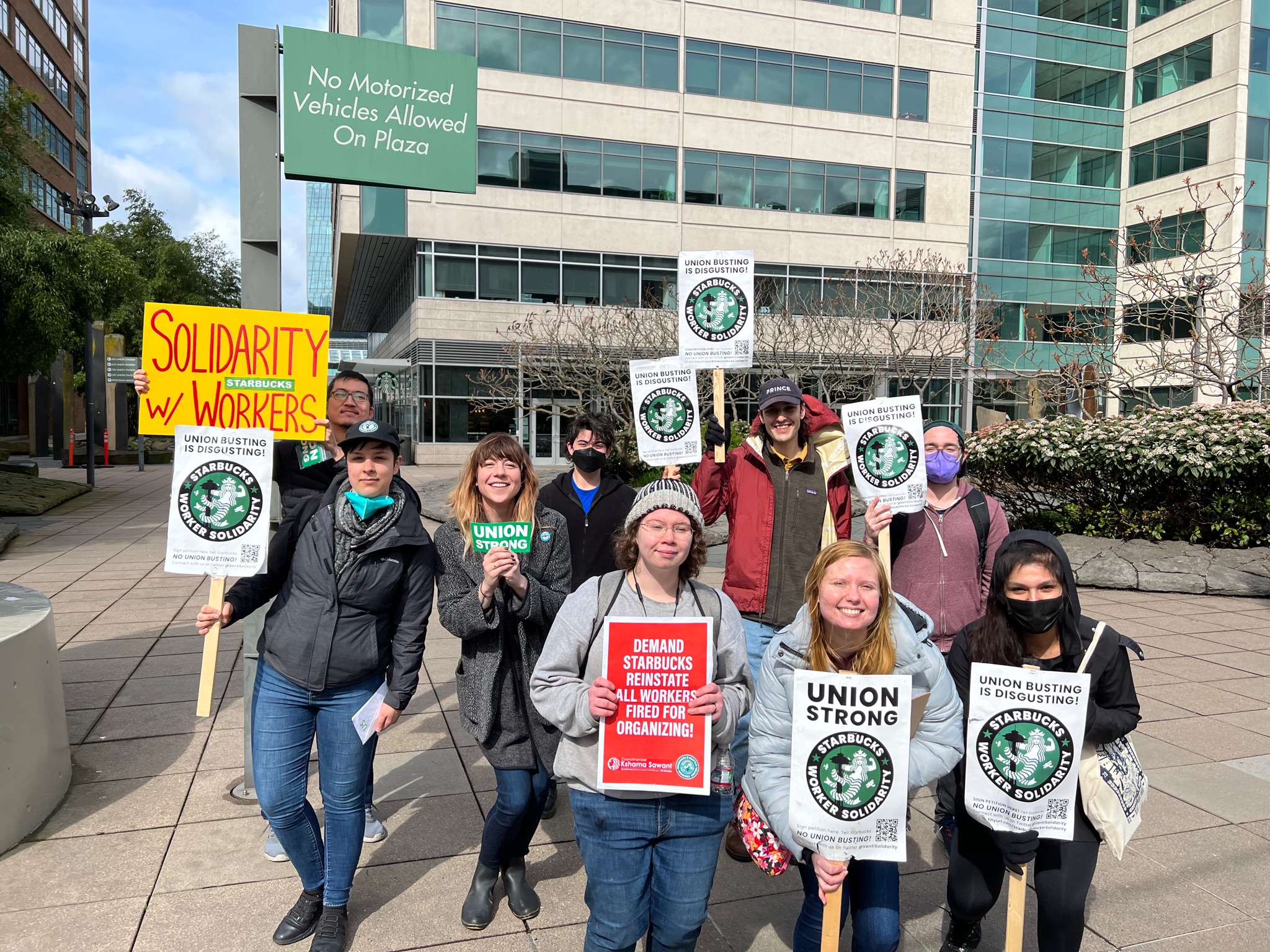On Thursday, April 21, workers at the 505 Union Station Starbucks in the CID engaged in a daylong strike, from 7 am-12 pm. The strike continued the worker-led walkout and picket the previous afternoon in response to management sending home a barista for wearing a hat with the Starbucks Workers United logo. The disciplinary action was clearly retaliatory and is of a piece with other instances of selective dress code enforcement as a means of union-busting that other unionizing Starbucks partners have experienced across the country. Starbucks Workers United has filed an Unfair Labor Practice complaint to combat the charge and win back lost wages. The workers also wrote a powerful letter to upper management to explain their reasons for striking.
The strike at the 505 Union location is the fourth strike waged by Starbucks workers in the Seattle area over the past two weeks – the 5th and Pike, Eastlake, and Marysville stores also saw employees take matters into their own hands and withhold their labor in the face of Starbucks’ efforts to interfere with the unionization campaign. In conversations on the picket line, these baristas discussed their reasons for unionizing (they filed in March). Many of them circled back to cutbacks in hours, job insecurity, and the gap between the wages they take home and the cost of living in and around Seattle. One worker actually resides in Kitsap County and takes the ferry to work each day because they cannot afford to live in Seattle, showing the direct link between workplace struggles and housing justice struggles.
The workers at 505 Union endured wind and rain over the two days, not to mention the fact that security prevented them from picketing directly in front of the store entrance. But alongside community supporters from Seattle DSA, Socialist Alternative, workers from other Starbucks stores, and unions from across the area (UAW 4121, Seattle Educators’ Association, Verizon Wireless Workers Rising), they made their demands heard. Strikers and their comrades reached out to commuters and regular customers alike, urging them to buy their morning coffee somewhere else (the store remained open, staffed by members of the store and district management) and talking to them about the solidarity campaign for Starbucks workers, the Solidarity Pledge, and the PNW Starbucks Workers United relief fund. Unionized baristas from Hood Famous Cafe across the street brought coffee over early on, and the crew at the Dochi stall in the nearby Uwajimaya market later delivered some delicious mochi donuts, much appreciated after a lively set of strike chants.
What has been apparent in all of these militant actions taken by unionizing Starbucks partners is the strength of the social bonds they built as co-workers and that the attempts by Starbucks corporate and store management to break these bonds through their bottomless arsenal of union-busting tactics have been mainly futile. The victorious unionization vote of workers at the Seattle Reserve Roastery later in the afternoon, shortly after the strike concluded, was further proof that the company’s campaign of intimidation and threats against workers exerting their power on the job is blowing up in their face. There is a long fight ahead, but the fearless initiative shown by Starbucks workers at 505 Union indicates that they – like their coworkers across the country – are not backing down.
